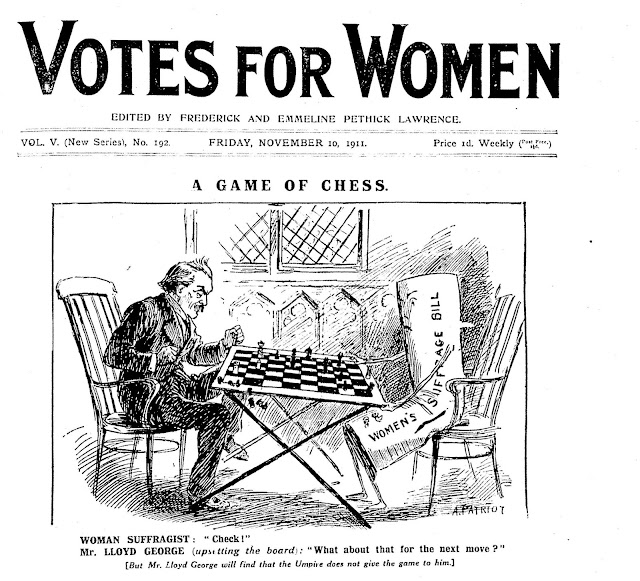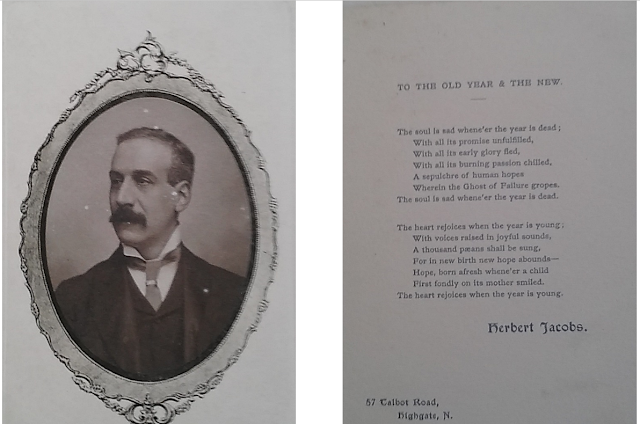After the extensive investigation of Herbert Jacobs' political engagement (here and here), the series takes a breather before we look at his legal career. However, before we leave behind the struggle for women's suffrage completely, the cartoon below is worth a look.
 |
| (Click on any picture in this post to enlarge.) |
There are several things to investigate - so we only need to note, in passing, the satisfactory depiction of the chess board: all 64 squares, all where they should be, though that "umpire" reference sounds a little odd to modern ears, but then maybe arbiters hadn't yet been invented.
So, who was "A Patriot" sheltering behind the nom de plume? And who were Frederick and Emmeline Pethick Lawrence, the editors of "Votes For Women"? And - while we are about it - could Lloyd George really play chess?


















